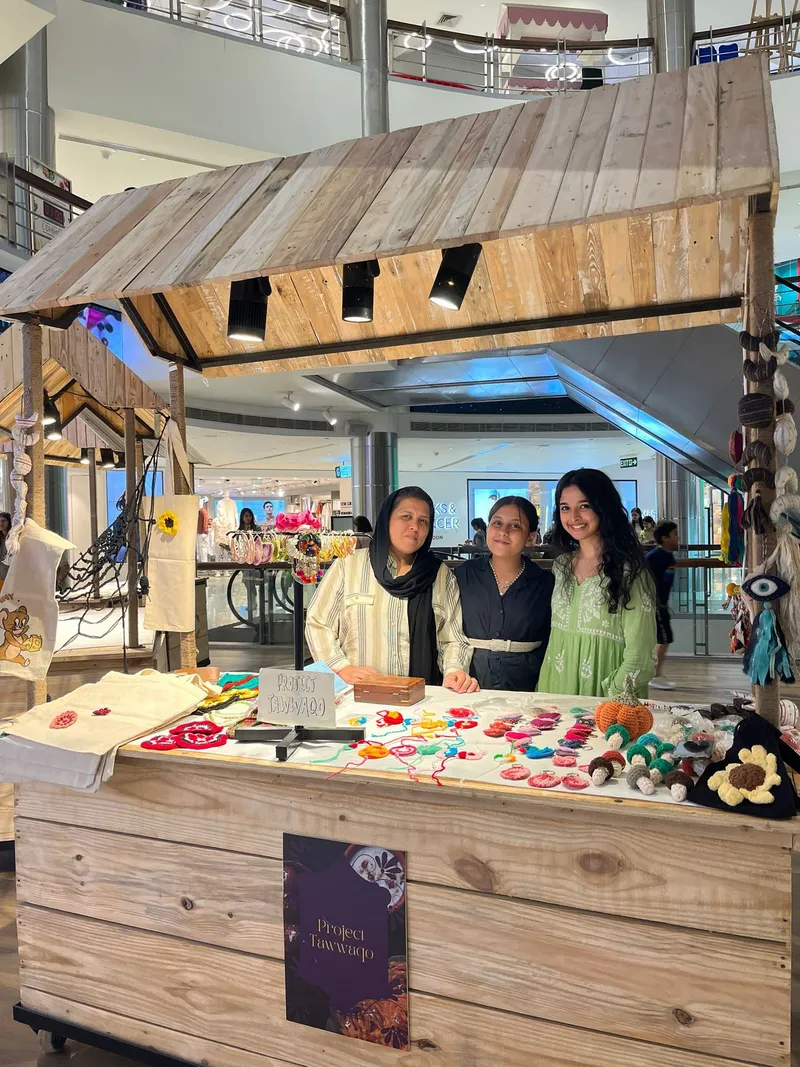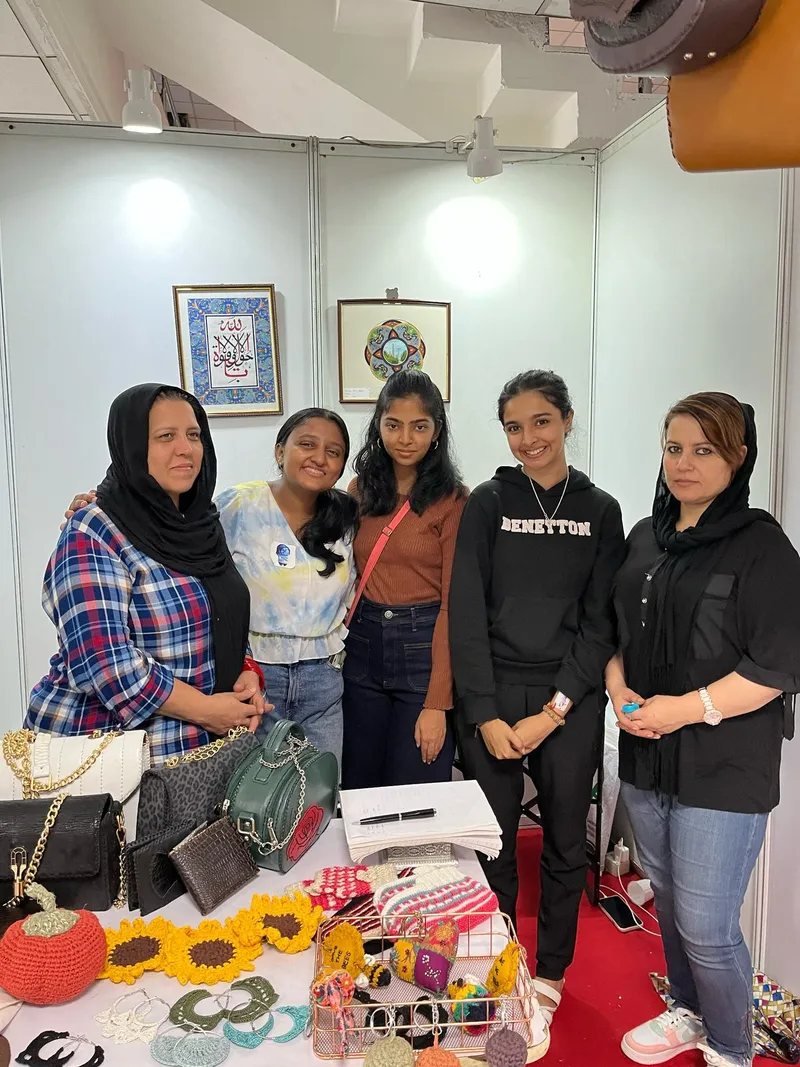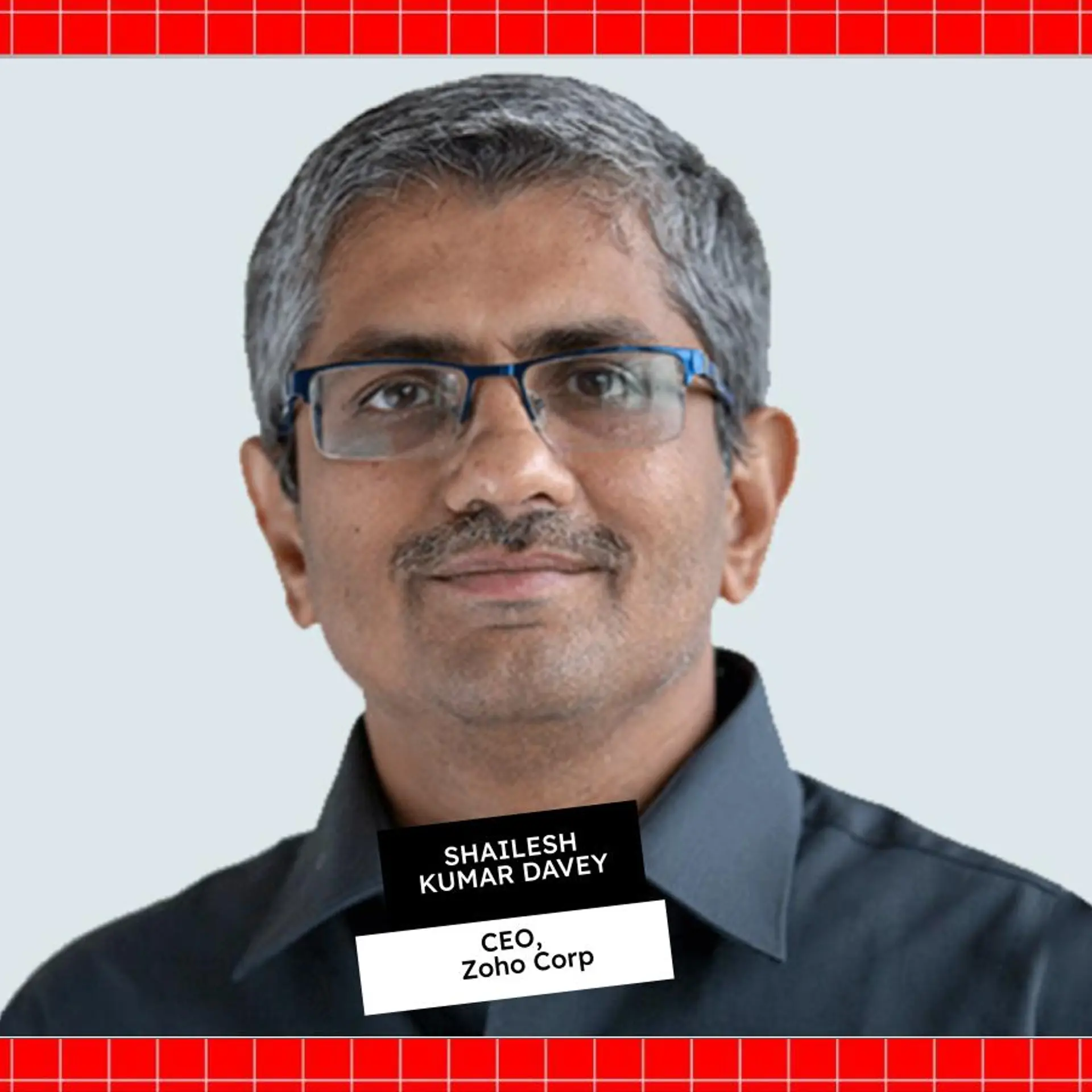Project Tawwaqo serves as a beacon of hope for Afghan refugees
Founded by a college student, Project Tawwaqo serves to empower Delhi's Afghan refugees while preserving their culture.
In 2016, Khadeeja Salim (name changed on request) fled Afghanistan, concerned for her children’s safety amid bombings and kidnappings. She, along with her four children, migrated to India in an attempt to start afresh, joining Delhi’s 15,000-strong community of Afghan refugees. However, she was denied housing and found it difficult to sustain a business to support her children’s education.
That’s when Project Tawwaqo, a student-led initiative, came to their help.

Tawaqqo founder Aditi Trivedy (right) along with the beneficiaries at a stall.
"The students have helped us a lot. They helped us with the stalls and with our products. They helped us buy clothes. They have also helped me personally. When I needed to move, they helped me find a house. We didn't have enough money, but they solved our problem. They have done a lot for me and the ladies here," Salim recounts.
The Afghan community grapples with various social, economic, cultural and political challenges. For many Afghan women, in particular, finding a stable source of income is key. Project Tawwaqo serves as a bridge that links these women to an economically empowered future.
The beginnings
Project Tawwaqo was founded in March 2022 by Aditi Trivedy, an alumnus of Lady Shri Ram College for Women, University of Delhi. The idea was conceived when Trivedy joined the United Nations' Millennium Development Fellowship Programme.
The fellowship programme encouraged participants to work towards implementing the Sustainable Development Goals by working closely with a community for a semester. Trivedy and her teammates chose Goal 5 (gender equality) and Goal 8 (economic growth).
As Trivedy recalls, "I'd read about the refugee community in Delhi for quite some time, and I was keen to work with the Afghan refugee community because I enjoyed reading Khaled Hosseini's work, and I always felt a certain connection to the Afghan community."
Upon reaching out to members of the community, Trivedy realised that most people were in search of a platform to sell their handcrafted products. The team then decided to leverage Delhi University's vibrant campus events to provide the community with a platform.
Project Tawwaqo focuses on economic stability. Initially, it helped women who curated products such as jewellery, keychains and accessories by selling them at stalls at events as well as to college societies.
Trivedy explains, "Wherever we were able to personally build a network and a rapport, we were exhibiting their work. We were helping them sell to customers. We were also helping with identifying a new demographic for them. And we also helped them figure out what there is a demand for."
The project was started in collaboration with sixty women. Over the years, many women have chosen to migrate to other countries. The team now has 25 volunteers.
The product base has expanded to over 20 products, such as crochet kits, food items, and traditional Afghan desserts.
The project, as Trivedy elaborates, has a two-fold purpose: "We're talking about the story of our community. We are making sure to tell people about the integral role this community plays in the socio-cultural fabric of Delhi. They come with their history, and it's important for us to know about their struggle. On the other hand, we also want to ensure that we help them earn a livelihood."
Over the last three years, Tawwaqo has found its way to over twenty colleges across Delhi-NCR and sold products worth over Rs 1.5 lakh. The community has also earned over Rs 50,000 through bulk ordering and online sales.
Battling challenges and the way forward

The beneficiaries and the founder Aditi Trivedy (second from right) at Tawwaqo's first stall.
In its nascent stage, Project Tawwaqo's biggest concern was the cultural gap. Most women spoke neither Hindi nor English. As Trivedy recalls, during the first meeting with the community, most people misunderstood what Tawwaqo was trying to do.
Over time, the team managed to bridge this gap with sincerity and patience, and by gaining their trust.
While Project Tawwaqo has managed to overcome some challenges, others persist. No laws exist to help refugees access equal work opportunities.
They lack provisions to open a bank account because they are not eligible for Aadhaar cards. As a result, they are unable to find a space in the formal employment sector.
Also, a polarised social landscape is adding to their worries. A community centre, where the women got together to sew and share stories, was shut down, which impacted their mental health.
Trivedy explains, "There are a lot of challenges that continue to impact the community's day-to-day living. This is evident in how many people are trying to leave the country. We are systemically unable to support a community that's only trying to build a better life away from violence and trauma."
She believes that the only way forward is for society to step up. "There are ways for us to support them. It's as simple as going to a restaurant in Lajpat Nagar that is run by Afghan refugees. These ways don't require us to do much. All we have to do is share the word and continue to respect their culture."
Project Tawwaqo remains committed to making life better for Afghan refugees. "’Tawwaqo’ means hope. So that's the only thing that keeps us going. There is hope that we are in this together and we will be in the future as well," Trivedy affirms.
Edited by Kanishk Singh






